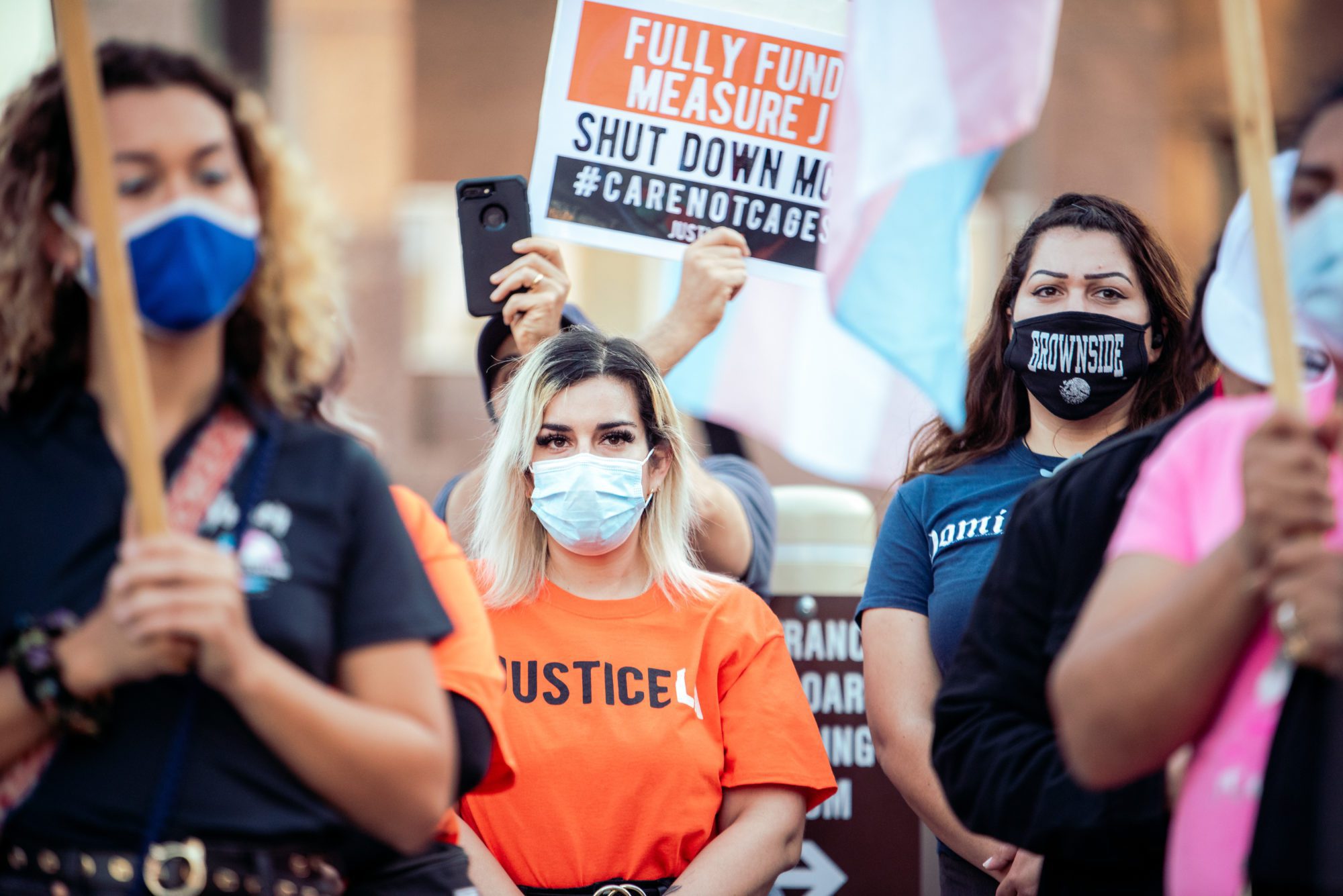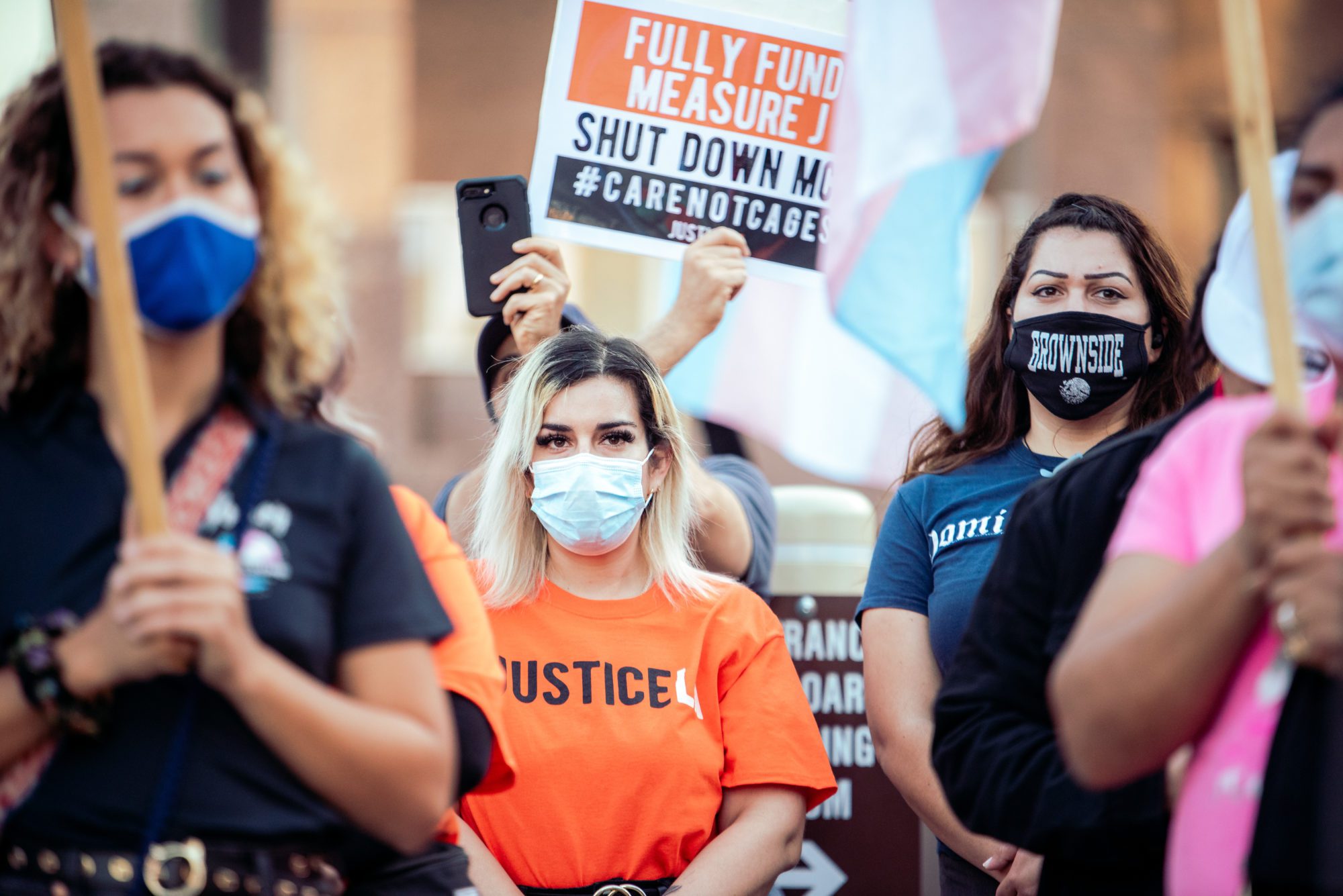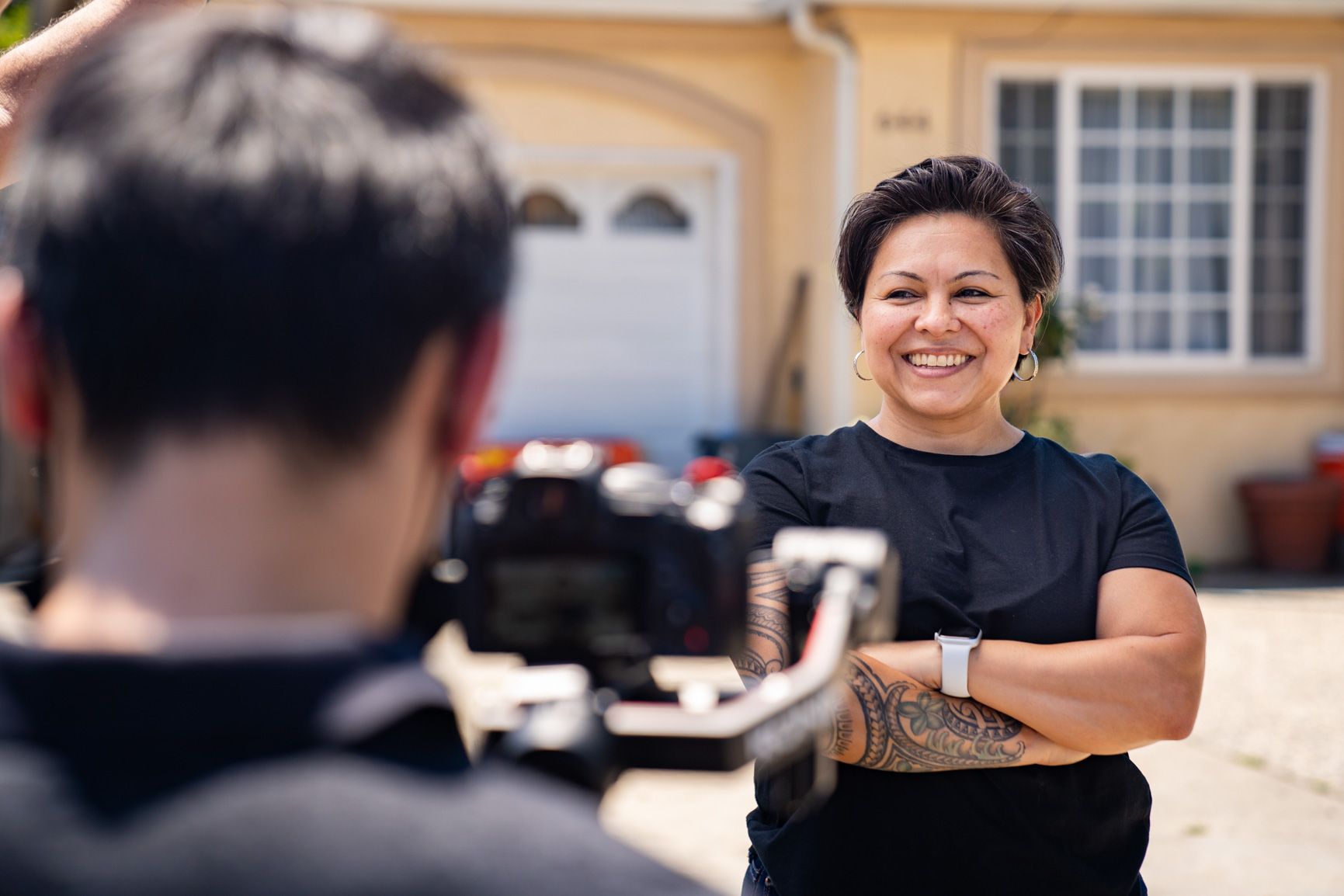As Los Angeles Politicians Trade Barbs, Jail Deaths Keep Mounting
Former Sheriff Alex Villanueva, who oversaw a string of deaths in custody, is now running to join the Board of Supervisors, which has also done little to alleviate the crisis.
Piper French | December 19, 2023
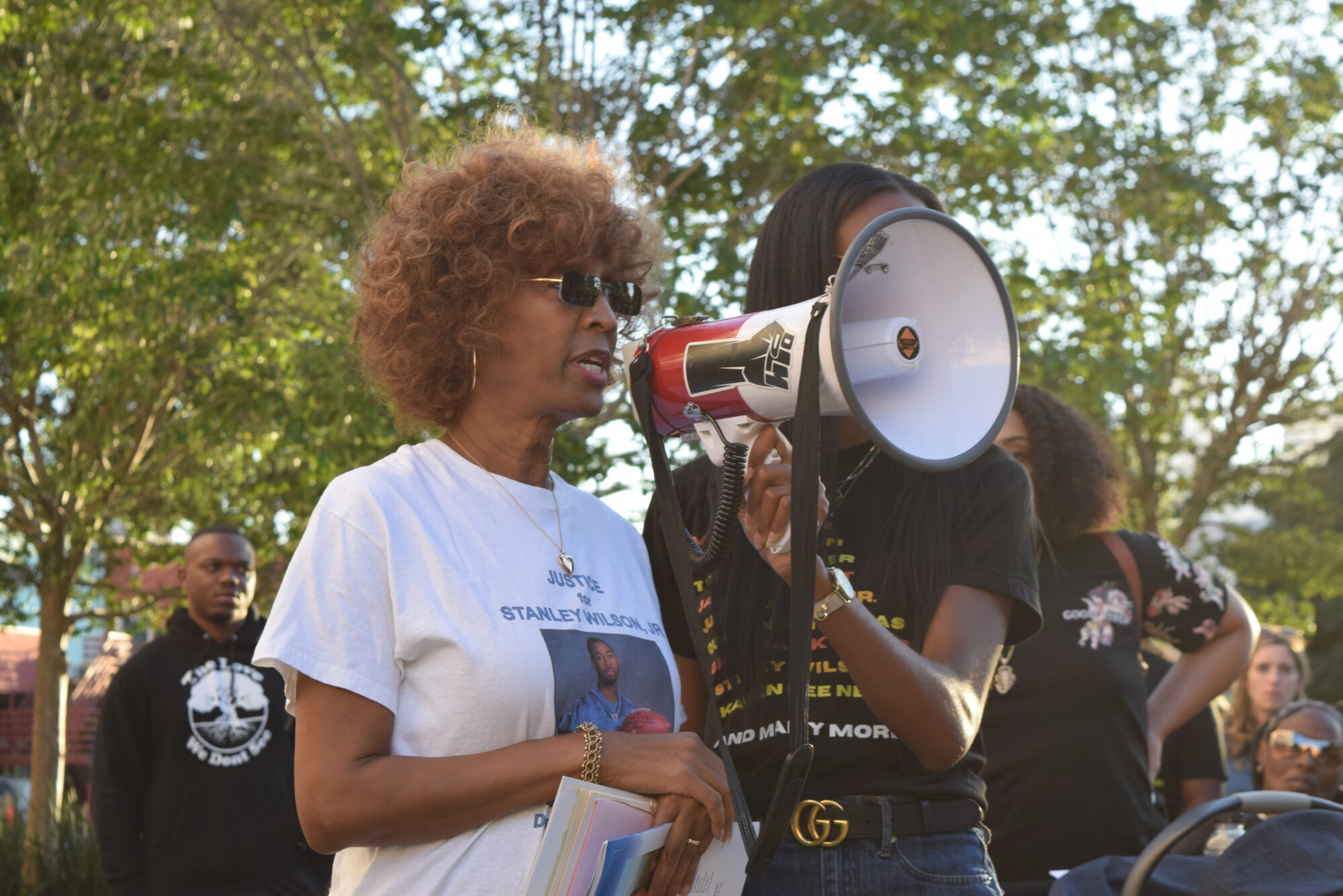
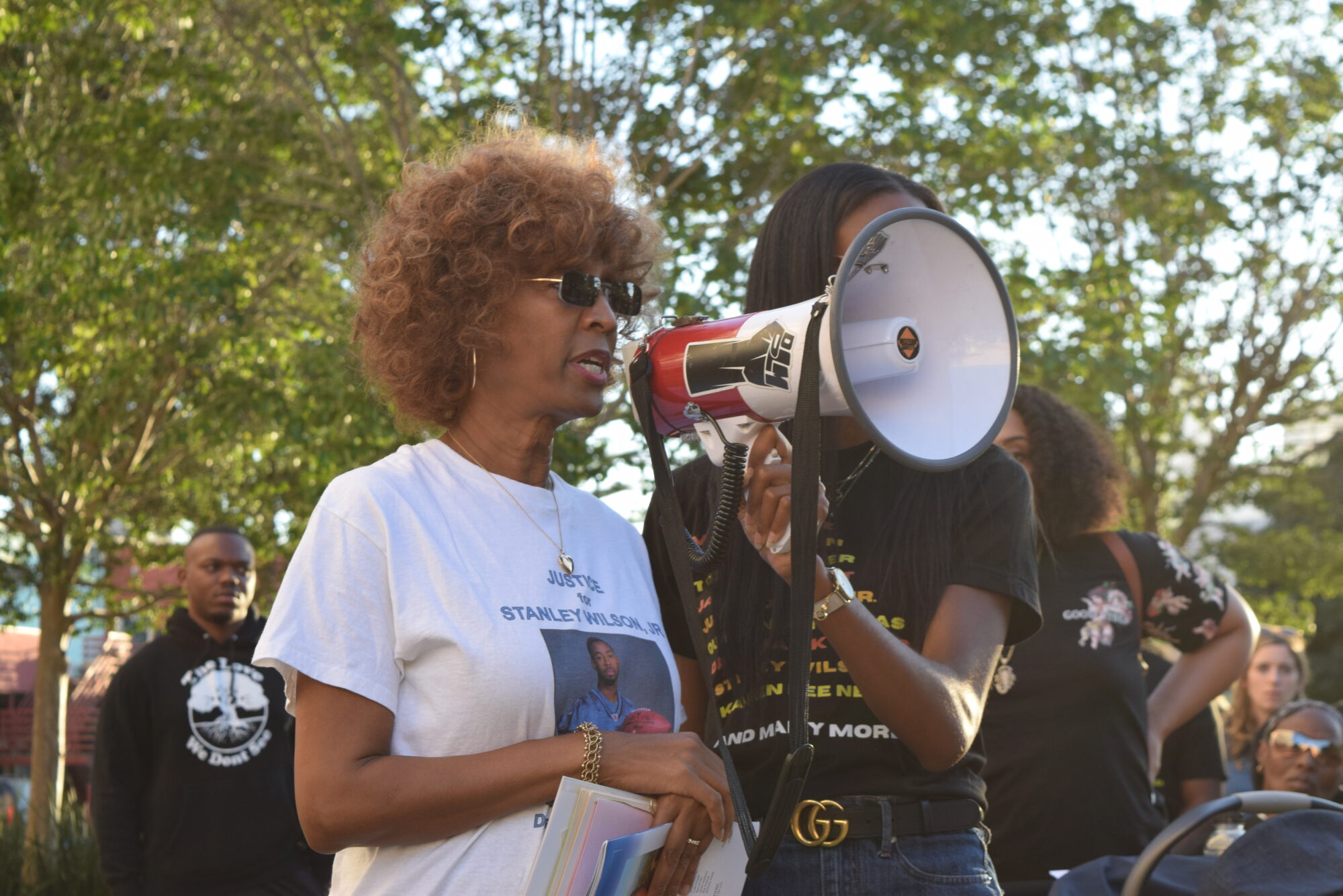
Bolts this week is covering the crisis in local jails, and the county boards that oversee them, with a three-part series. Read our reporting from Los Angeles, from Harrisburg, and from Houston.
When Los Angeles Sheriff Alex Villanueva lost his reelection bid in November 2022, it seemed to mark a default cessation of hostilities between him and the Board of Supervisors, the county’s five-member governing body. The conflict spanned his four-year tenure, from an early clash over Villanueva’s rehiring of a deputy fired for allegations of domestic abuse to his dispatching a team of deputies armed with battering rams to raid one of the supervisor’s homes just before the 2022 election. There was no shortage of choice words, either: At one point, the sheriff said the supervisors “need to be taken to the shed and they need to be beat down so they start doing their job.”
Recently, though, Villanueva has reemerged from retirement with a novel provocation: He is seeking to join the ranks of the body he long antagonized. In September, he announced his bid for county supervisor, running against Janice Hahn, a centrist Democrat with deep roots in LA politics. Perhaps predictably, the other four sitting supervisors have endorsed Hahn, who promptly issued a statement calling Villanueva “a fraud and a failure.” In response, Villanueva told Bolts: “Janice Hahn is a fraud and a failure, hands down.”
All this feuding can seem petty, but the stakes are quite literally life and death for some Angelenos.
Jail deaths steadily increased each year Villanueva was in power. “Under Villanueva, the conditions in the jails deteriorated significantly,” said Claire Simonich, associate director at Vera Action, “[there were] people with serious mental illness being chained to chairs for days at a time, dozens of people being crammed together in overcrowded facilities.”
In response to a request for comment on the jail deaths, Villanueva emailed Bolts: “Aw gee, did something called the pandemic happen during my tenure?” He also touted his efforts to reduce the jail population during the pandemic. However, a UCLA report found that despite an initial decline in the population, overall people were actually held in custody pretrial longer during the pandemic, in part due to the sheriff department’s practices.
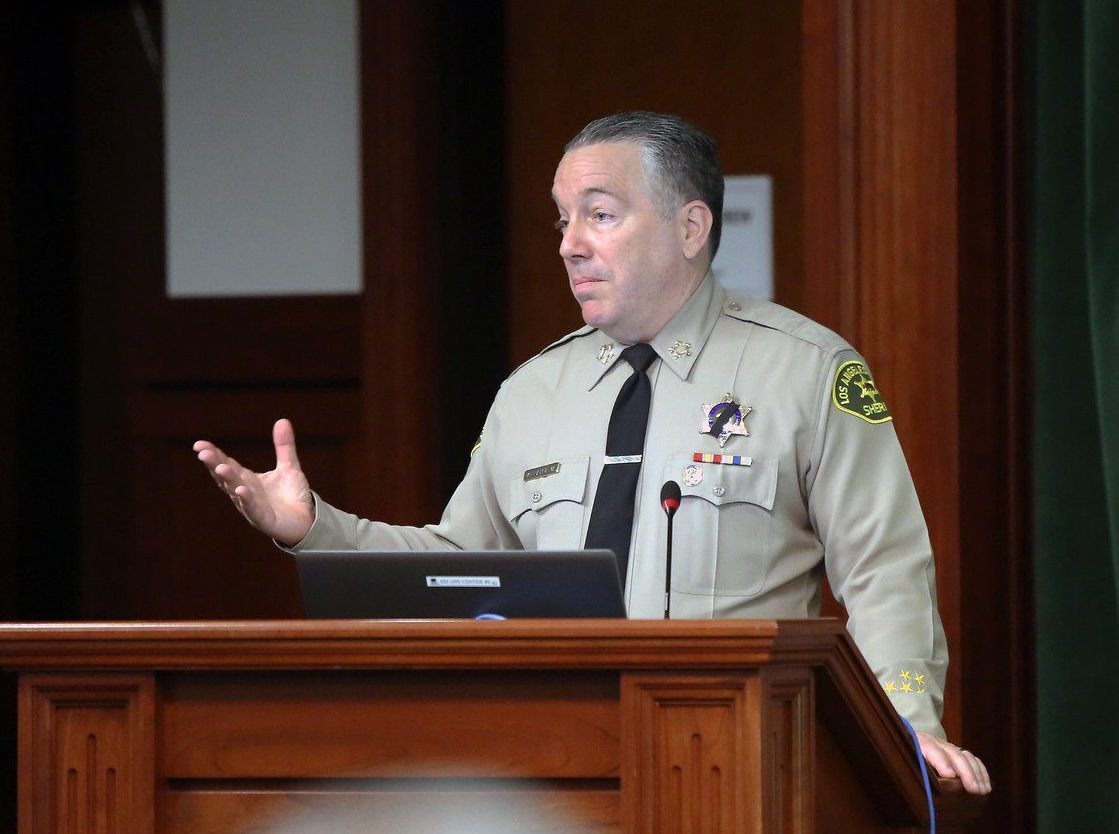
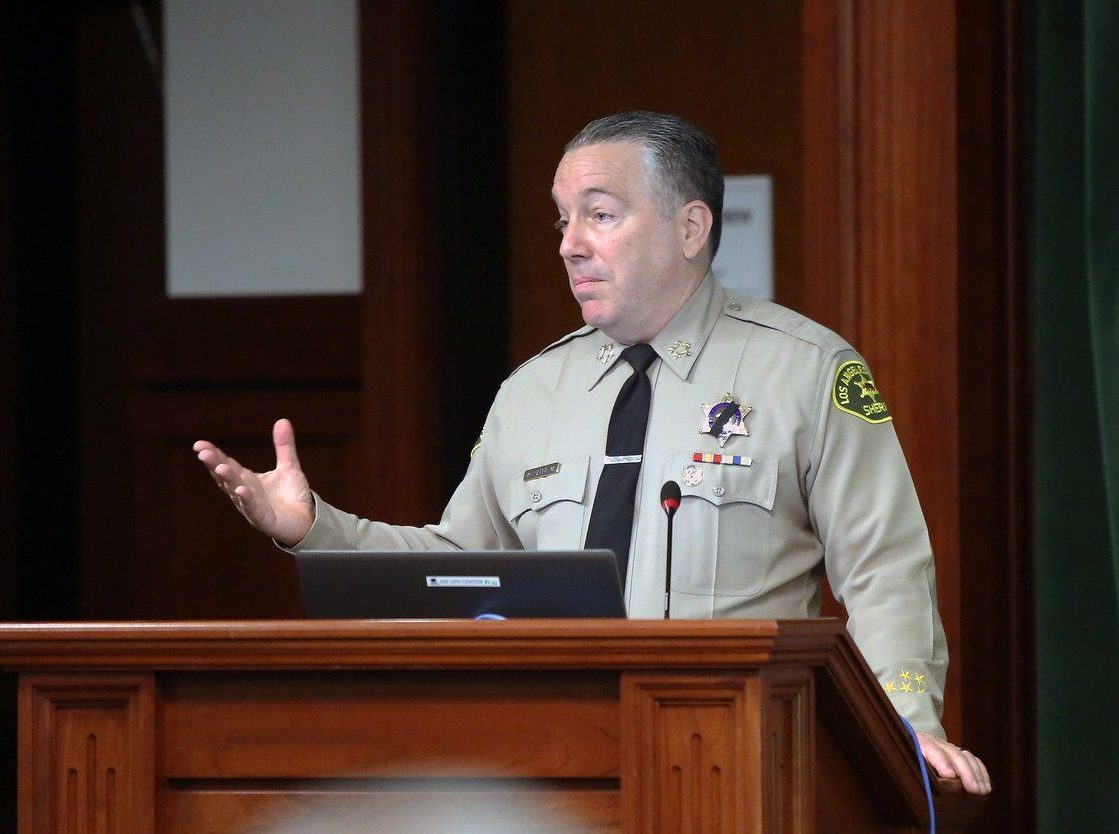
But the crisis has continued since Villanueva’s exit. At least 46 people have died inside LA County jails or elsewhere in the sheriff’s custody thus far in 2023. These numbers make the jails in Los Angeles deadlier than Rikers Island, the New York lockup that frequently makes national headlines for its intolerable conditions. An 18-year-old also died in one of the county’s juvenile detention facilities in May.
Part of the responsibility falls on Villanueva’s successor, Sheriff Robert Luna. But the county’s Board of Supervisors also possesses an extraordinary amount of power over this situation: it sets the county’s $46.7 billion budget, including how much money goes toward incarceration and how much goes to alternatives to incarceration like inpatient mental health treatment, and holds oversight power over county jails and the sheriff’s department.
“On the flip side,” Simonich said, “the board does have responsibility to build up the types of services that will prevent crime from happening in the first place and invest in housing, invest in mental health care, invest in substance use disorder treatment.” The supervisors have dragged their heels on funding for the mental health beds the county desperately needs, and continuously failed to close the dangerous and dilapidated Men’s Central Jail, a move they first committed to in 2019.
The showdown between Hahn and Villanueva, then, underscores just how drastically the sheriff’s department and the board alike have failed to protect the people in their care.
Their race may be resolved as early as the March 5 primary if a candidate receives more than 50 percent across District 4, an area in the county’s southern part. That’s a strong possibility, with only two lower-profile candidates in the race. Otherwise, Villanueva’s comeback bid may continue into a Top 2 runoff in November.
But local advocates are also eying the two other seats on the board that Angelenos will decide this election, hoping to put in place a stronger alliance next year willing to finally flex the board’s power to improve jail conditions.
“The Board of Supervisors, apart from when they are forced to discuss in-custody deaths, have been entirely silent,” said Ambrose Brooks S., the campaign and advocacy manager for Dignity and Power Now, a member of the Justice LA Coalition. “This is urgent, this is an emergency, and their silence is not going to make us stop advocating for them to do something.”
Thanks to a state transparency law that went into effect on New Year’s Day, 2023, the LASD now maintains an in-custody death tracker. As of December 18, the list includes 45 names: men between the ages of 20 and 91, most of them pretrial, who allegedly died by suicide, because of illness, or a drug overdose, or, in three instances, at the hands of another person. But the majority of deaths listed are attributed to “natural causes” or are pending a final autopsy report.
There is at least one person whose death is nowhere to be found on that list: Stanley Tobias Wilson, Jr. Wilson was a talented athlete who attended Stanford and went on to play football in the NFL. But unresolved trauma from childhood sexual abuse combined with CTE from years of football proved devastating to his mental health, his mom, Dr. D. Pulane Lucas, told Bolts. Last November, Wilson was deemed incompetent to stand trial for a recent break-in. Unbeknownst to Lucas, a judge ordered that her son be moved from where he was being held at Twin Towers, the county’s second largest jail, to Metropolitan State Hospital, which specializes in psychiatric care, by no later than Dec. 5.
Nearly two months later, he was dead. A County Medical Examiner employee initially told Lucas he’d been found unconscious in his cell. “And then the story changed,” Lucas said. Now, they were telling her he’d fallen out of a chair and died of a pulmonary embolism while waiting to be admitted to Metropolitan. Lucas, who runs a policy nonprofit in Virginia, flew to Los Angeles to try to figure out what had happened, visiting the sheriff’s department to request records, then to Metropolitan, where her son had allegedly collapsed. “And that’s when they told me that they’ve never had anyone by the name of Stanley T. Wilson Jr. admitted,” she said. “I was blown away…now all of a sudden to get the message in person that Stanley did not die there and was never a patient there?”
Lucas sought another autopsy. “There’s blatant evidence of violence against him,” Jason Major, an autopsy technician who performed the independent death review, told Bolts. “He had a footprint on his face that’s clearly visible…he had abrasions on his knuckles, on his knees.”


To Lucas, it is impossible to square the simple answer for her son’s death—a pulmonary embolism—with the errors, shifting narratives, and obfuscations surrounding Wilson’s death that she received from the County Medical Examiner’s office. (The office did not respond to a request for comment). Major and Lucas both believe that the truth is closer to the County Medical Examiner’s original version of the story; that Wilson collapsed and possibly even died at the jail, and that deputies transported him to the hospital after realizing that they were in flagrant violation of the judge’s order to transfer him months earlier. “They never even checked him in,” Major said. “He basically was dropped off, like Weekend at Bernie’s.”
Nick Shapiro, the director of the Carceral Ecologies lab at UCLA, says that Wilson’s case is characteristic of jail deaths in LA County. Fatalities that get chalked up as natural often stem from a complicated interplay of factors such as poor mental health treatment, racialized violence, and negligence, he told Bolts. “The Black population has been subject to specific racial violence from deputy gangs [within the jails]… there’s been very long-term, documented gang related activity in the mental health ward.”
In a 2022 analysis of 58 autopsies of people who died in LA county jails between 2009 and 2018 (just a small fraction of the total number owing to the county’s refusal to release most records), Shapiro and his co-author, Terence Keel, the founding director of the UCLA Lab for BioCritical Studies, found that more than half of the deaths classified as “natural” exhibited signs of violence on the body. They also found that Black people’s deaths were much more likely to be categorized as “natural” than those of other races. “There’s a problem in thinking about ‘natural death’ being the same for incarcerated populations that have no free will to choose what they eat, to choose what they drink, to bathe themselves on their own schedules, to wear appropriate clothing for the weather,” said Shapiro. In a recently published follow-up report, the researchers conclude that these classifications serve to downplay the responsibility of deputies and other jail staff for these deaths, whether through negligence and deprivation of care or outright violence—essentially blaming incarcerated people for their own demise.
“What we’re looking at is really capital punishment through other means,” Keel told Bolts.
To Lucas, one of the most suspicious aspects of her son’s death was how the official story changed and coalesced over time: “They’re telling their story after the fact and it appears that they’ve all gotten together because they’re all saying the exact same little story, you know, word for word.” (Lucas said that LASD has refused to release video footage she’s requested).
Lucas told Bolts that Wilson’s omission from the official LASD tracker leads her to suspect that there are other deaths missing, too. (She recently wrote an editorial for The Appeal exploring this issue). “Within one month of when they started counting—here’s Stanley,” she said. “The beacon to say: look, some of us aren’t being counted. And here’s Stanley with a mama who’s not just going to accept the medical examiner’s statement of how he died.”
In September, Lucas flew once more to Los Angeles to attend a vigil for those lost inside county jails. The following day, she gave public comment at the Board of Supervisors meeting. “While it’s too late for Stanley, I’m here to speak to the importance of providing needed services for inmates with mental health services, and also to support alternatives to incarceration,” she told the board.
The board has a complex record on both of these issues. “Historically, the board has taken first steps to establish ‘care first’ practices in Los Angeles,” said Simonich of Vera Action. They’ve pledged to shut down Men’s Central Jail, established an “Alternatives to Incarceration” working group to explore implementing a variety of services that can preclude jail time, and created a Justice, Care, and Opportunities Department to one day move pretrial services out of the Probation department and instead develop community programs to support people awaiting trial. “Where the board continues to falter is on follow-through.”
Simonich told Bolts she wanted to see the board immediately commit to a clear timeline to close Men’s Central Jail, which has been responsible for a disproportionate share of deaths this year. “It’s now been more than two years since the board commissioned the report on how to close Men’s Central Jail, and no actual plan has been adopted. No timeline has been put in place,” she said.
For Brooks S. of Dignity and Power Now, the single most important intervention to alleviate the jail death crisis would be for the Board of Supervisors, in collaboration with the County CEO, to fast-track funding for more county mental health beds. Dignity and Power Now has been working with a woman whose son was jailed about a year ago while suffering from paranoid schizophrenia ; a judge ordered him released to inpatient mental health treatment this fall, but he’s still in jail, and won’t be released until sometime this month because there are so few spaces available. “If there was no waitlist, all of the people who were ordered by the court for mental health diversion could go the day that the order is made,” Brooks S. said. “That would drastically decrease the jail population.”
The board could see a serious shakeup in several directions during the 2024 elections, from the arrival of Villanueva to the replacement of its most conservative member by a staunch progressive. Two supervisors besides Hahn are up for reelection: Holly Mitchell, whom Justice LA considers the foremost champion of the ’Care First, Jails Last’ agenda, and Kathryn Barger, the board’s lone Republican.
Mitchell faces three challengers, at least one of whom is questioning her support for criminal justice reforms; the consensus among local observers is that she’ll be the clear favorite in a district that covers South Los Angeles and western portions of the county.
Barger, whose district encompasses LA County’s relatively conservative, exurban Northeast but also includes left-leaning cities like Pasadena and Burbank, faces a challenge from two progressive Democratic candidates, Assemblymember Chris Holden and Burbank Mayor Konstantine Anthony. Two other candidates, Perry Goldberg and Marlon Marroquin, are also in the race. (Here too, the top two candidates will face off in November if no one receives more than 50 percent on March 5.)
Though Hahn has dismissed Villanueva’s candidacy, her political choices in recent months appear directly influenced by his presence in the race. After the former sheriff blamed her for voting for a hiring freeze on deputies in 2022, Hahn spoke emphatically at a recent event against defunding the sheriff’s department, noting that the Board has increased LASD funding by over a billion dollars over the past decade, even boasting that her office had stepped in to pay for extra patrols in some unincorporated communities. Recently, she cast the lone vote against moving parking enforcement out of the sheriff’s department and into the department of public works, which would remove some funding from the sheriff. “To me, that suggests Hahn tacking to the right and specifically playing into law enforcement,” Brooks S. said.
A spokesperson for Hahn emphasized to Bolts that the supervisor was concerned about rushing the measure without prior study. She added that fully funding LASD and investing in mental healthcare, job training, and youth programs was “not a contradictory effort.”


One of Hahn’s other challengers, Rancho Palos Verdes City Councilor John Cruikshank, is also running to her right, calling for more detention and support for sheriff officers.
Meanwhile, Barger has recently demonstrated more serious interest in investing in mental health care in the county. But the supervisor has also long expressed support for building a locked mental health facility in place of Men’s Central Jail, which organizers have denounced as a jail by another name. When Supervisors Hilda Solis and Lindsay Horvath introduced a motion seeking to immediately reduce the jail population in April, both Barger and Hahn expressed their opposition, citing public safety concerns. (Solis ultimately withdrew the motion). “We are desperate for Supervisor Hahn and Supervisor Barger to take the situation in the jail seriously,” said Brooks S.
In a statement to Bolts, Barger reemphasized her stance on closing the jail. “I believe Men’s Central Jail should be permanently closed and I stand by my belief that we need to replace it with a state-of-the-art facility that is secure, safe, and provides high quality care for those who pose a danger to themselves and the community,” she wrote.
Anthony, the Burbank mayor running against Barger, criticized her record in an interview with Bolts, including her support for a locked mental health facility to replace Men’s Central Jail. “On day one, if it hasn’t been agendized, I will agendize the closing of Men’s Central Jail,” he said. “I will absolutely vote for a speedy timeline. It’s well overdue.” Anthony also told Bolts he’d move to fast track mental health beds, as long as they weren’t supplied through Care Courts, a novel form of court-ordered mental health treatment championed by Governor Gavin Newsom that has drawn criticism from disability rights and civil liberties advocates. “We can build outreach centers…that the county simply funds, and [are] run by the local city or jurisdiction. We need to spread out the help,” he said.
Holden, Barger’s other challenger, didn’t respond to multiple requests for an interview. He has supported police and prison reform at the state level, writing a bill known as the “George Floyd law” to establish greater consequences for police who fail to intervene when a colleague is using excessive force, and most recently sponsoring the Mandela Act, which would bring California in line with U.N. restrictions on the use of solitary confinement—including in the local Los Angeles jails.
Anthony said he hoped to hasten the Board of Supervisors’ halting advancements towards a county system that prioritizes care over incarceration. “By running in this race and getting elected, I’ll be able to flip one of the seats that is preventing a lot of this progress, and hopefully that will get rid of many of the barricades that we’re seeing,” he told Bolts.
Los Angeles faces the strange possibility of emerging from these elections with four supervisors who have expressed a commitment to advancing criminal legal reform at the county level—and Alex Villanueva. And while it may seem that just one supervisor couldn’t do much to throw a spanner in the works, Simonich of Vera Action cautioned that each member of the Board holds enormous power, from choosing what to place on the agenda for public hearings, which can have significant policy ramifications, to appointing commissioners, including to two separate boards with oversight power over LASD and the jails—and positions such as the Chief Medical Examiner-Coroner.
Keel, the UCLA researcher, hopes that the March primaries spur a broader reconsideration of how the county responds to these deaths. He wants the Board of Supervisors to establish an independent medical board to provide a secondary autopsy for everyone who dies in state custody, “whether that’s in jail, or on the streets.”
“We are not helping to create a better county if we continue to just assume these people died as a result of their own will and their own poor biology, rather than saying, No, we’re culpable, we’re accountable,” he said. “We need to be thinking differently about inequality—and how the ultimate cost of inequality is death.”
Correction (Jan. 2024): This article has been updated to reflect the final version of Terence Keel’s and Nicholas Shapiro’s report on LA County Jail autopsies.
Stay up-to-date
Now is the best time to support Bolts
NewsMatch is matching all donations (up to $1,000) through the end of the year. Support our nonprofit newsroom today.



